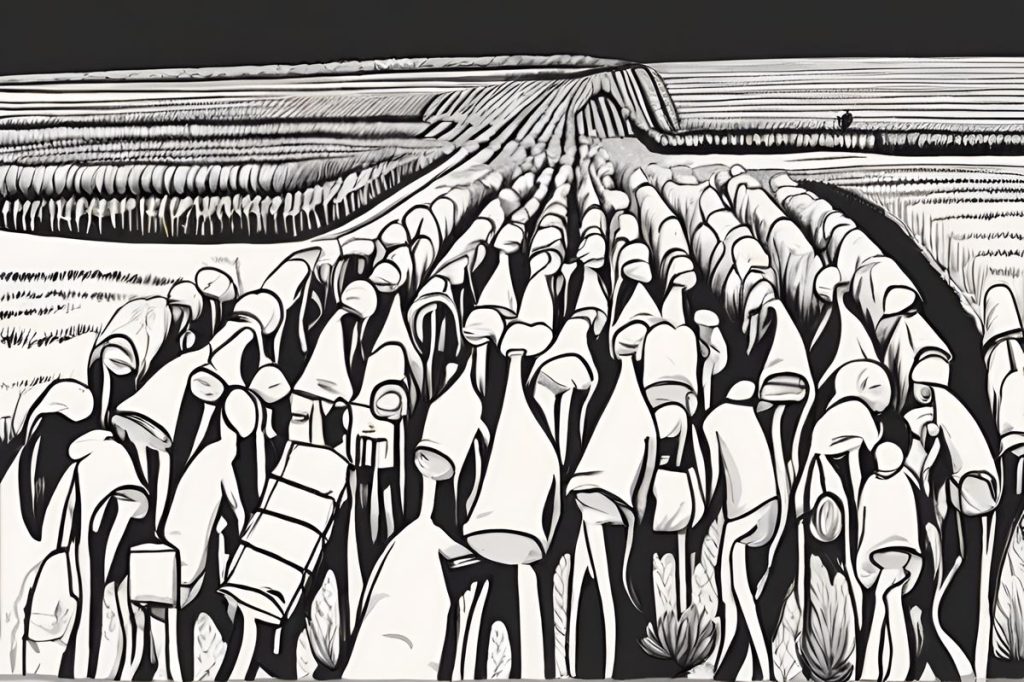In Paphos, farmers are struggling with severe water limitations, risking their crops and livelihoods. Reduced water allocations and the drying Asprokremmos dam have led to mounting concerns, prompting calls for state intervention and sustainable water management solutions.
What are the struggles faced by farmers in Paphos due to water limitations?
Farmers in Paphos are contending with imposed water restrictions that have slashed irrigation capabilities, jeopardizing their crops and livelihood. They rally for state intervention to combat critical water shortages from reduced allocations, fearing financial ruin and the loss of agricultural heritage. They urge for sustainable water management solutions.
Paphos Farmers Rally Against Water Limitations
Farmers across the Paphos district are up in arms against imposed water restrictions that have significantly affected their ability to irrigate crops. On a bright Monday morning, a group of more than 20 determined agriculturists congregated in the small village of Timi. Their unified plea was clear: they need state intervention to address the critical water shortage that threatens their livelihood.
The crux of the matter lies in the reduced allocation of water for their fields. These cultivators are grappling with the harsh reality of receiving only 70 percent of the water they had last year. In the wake of a notably dry winter, this precious resource has dwindled swiftly, leaving them in a precarious position as the growing season approaches.
The Drying Asprokremmos Reservoir
At the heart of this issue is the Asprokremmos dam, a vital water source for the region, which now sits at a worrying 50 percent capacity. The farmers’ distress is compounded by the knowledge that the scarcity of water will preclude them from planting their usual seasonal crops in the upcoming summer months. Faced with mounting rental costs for their fields, farmers fear that their very survival is at stake.
In their impassioned speeches, the farmers did not just speak of financial losses but also of the profound impact on their families and the workers who depend on the agriculture sector. They are not asking for much—just the ability to sustain their farms, provide for their families, and secure the welfare of those who work alongside them.
The Impact of Water Shortages on Agriculture
It’s essential to understand the ripple effects of such water shortages. Agriculture forms the backbone of many rural communities in Cyprus, with Paphos being a significant contributor to the island’s agrarian output. The water cuts mean not only reduced yields but also a possible increase in prices and a loss of biodiversity as farmers are forced to abandon traditional crops.
The repercussions extend beyond the economic sphere. If farmers in Paphos cannot plant their crops, this could lead to a loss of agricultural knowledge and a detachment from heritage as the connection between the land and its people gets severed. It is a poignant reminder of the delicate balance between nature’s resources and human needs.
Appeals for Government Support
The farmers’ demonstration is a call to action for government officials and relevant authorities to provide immediate assistance. The protest in Timi is not an isolated incident but part of a larger narrative where farmers worldwide find themselves battling the effects of climate change and resource mismanagement.
These agriculturalists are advocating for more than just short-term fixes. They seek comprehensive plans that ensure sustainable water management, fair distribution of resources, and ultimately, the preservation of their way of life. As the sun sets on the fields of Paphos, the voices of the farmers echo a profound truth: without water, there can be no life, no growth, no future.
What are the struggles faced by farmers in Paphos due to water limitations?
Farmers in Paphos are contending with imposed water restrictions that have slashed irrigation capabilities, jeopardizing their crops and livelihood. They rally for state intervention to combat critical water shortages from reduced allocations, fearing financial ruin and the loss of agricultural heritage. They urge for sustainable water management solutions.
Why is the Asprokremmos dam a crucial water source for farmers in Paphos?
The Asprokremmos dam is vital for the region as it serves as a primary water source for irrigation and agricultural activities. With the dam currently at 50 percent capacity, farmers are facing significant challenges in securing the water needed for their crops, putting their livelihoods at risk.
What are the broader impacts of water shortages on agriculture in Cyprus?
Water shortages in agriculture not only lead to reduced crop yields and potential price increases but also threaten the agricultural heritage and biodiversity of the region. Farmers in Paphos are not only facing financial losses but are also at risk of losing valuable knowledge and connections to the land if they are unable to plant their crops.
What are the farmers in Paphos calling for in terms of government support?
The farmers in Paphos are calling for immediate government intervention to address the critical water shortage. They are advocating for sustainable water management solutions, fair distribution of resources, and long-term plans to ensure the preservation of their way of life and the agricultural heritage of the region.

